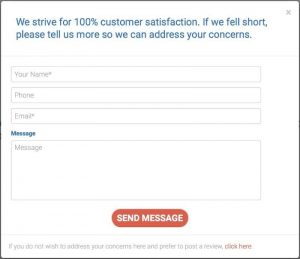You feel you’ve been putting a lot of effort into your current job or career. But are your feelings jibing with the facts? What are your actions telling others about your level of commitment to your work?
I like to think of it within a matter of degree: Are you committed . . . or just interested?
The two terms illustrate much different levels of involvement due to a difference in mindset. When you’re interested in something, your thoughts and beliefs (mindset) about it lead you to enjoy exploring the opportunities and ideas associated with it.
When you’re committed, however, your level of interest is much higher. You are all in. You are, as I like to say, “wholeheartedly dedicated.” Your thoughts and beliefs cause you to want to do whatever it takes (within reason, of course) to not only achieve the result but also to own the journey.
Mindset is a choice—you choose what you think or believe, and those choices lead you to higher or lower levels of feeling (in this case, interest versus commitment). When you’re just interested but not committed, it shows in subtle ways. Your coworkers, supervisors, and/or subordinates may feel you’re not really giving it your all or that you have conflicting priorities.
Self-awareness is therefore vital in choosing productive thoughts/beliefs. To gauge your commitment level, ask yourself four questions:
Am I focused on obstacles or results?
If you focus only on your frustration at the things preventing you from achieving the desired results, you’re not focused on the results themselves. You may even be trying to find reasons why it’s okay to fail. That’s not a committed mindset. Someone who is committed has decided they will achieve the end goal, come hell or high water. Failure is not an option. They’re focused on finding ways around the obstacles. They don’t waste energy and time on frustration.
How would I feel if I no longer got to do this job?
This isn’t about losing your job income, but about losing the role itself. Would you feel upset or anxious, or like something important was missing? Would you feel neutral? Or would you feel relieved? If you would truly miss the work, chances are you’re committed. But if it doesn’t matter either way, or worse, you’re relieved to see the work go, then you are at best just interested, and potentially not even that.
Do other activities consistently prevent me from achieving my work goals?
If you feel too many things are competing with your work so that you lack the time or energy to complete your projects, you’re showing your true mindset—and in it, your job isn’t as important as other priorities. For instance, if you’re not getting enough sleep and can’t focus on your main job because you’re up late working on a side gig, you’re allowing the side gig to interfere with the main job. These choices reflect your genuine commitments.
Do I consider it others’ responsibility to motivate me to do this job?
I’ll tell you a secret: You won’t always be excited about every aspect of something, even when you’re fully committed to it. But excitement isn’t the only kind of motivation. Sometimes, discipline fills in for waning enthusiasm. You may not always be excited about every activity required— but commitment is about the long haul and the end goal. If you’re waiting for your boss or someone else to give you reasons to want to do your job, it’s a good sign you’re just interested, but you’re not really committed.
You’re interested, but not committed: now what?
If your answers indicate a lack of commitment, chances are that others already see what you haven’t. But you don’t necessarily have to start putting together your résumé or consider a career change. Remember: Mindset is a choice. Let’s look at what two different clients—we’ll call them Lisa and Chelsea—did in this situation.
Though from different fields and companies, they sought my help for the same reason: They felt like something was missing. They liked the type of work they were doing, but neither felt like they fit in with their coworkers, and they both disliked the office politics (who doesn’t?). Neither felt much loyalty to their employer but loved helping their customers. And neither felt challenged in their role—both wanted to do more.
Their situations were very similar, but they addressed them differently.
After some coaching, Lisa decided that due to hidden mindset issues, she wasn’t giving herself the option to be committed. Therefore, she decided to purposely reverse this: For one year, she would be all in. Then, she would reevaluate. She did eventually end up leaving that organization to start her own company, but, by staying and totally committing, she found she enjoyed the work more and created more opportunities to learn and grow in her position. When she eventually left, she possessed all the right skills and knowledge.
Meanwhile, Chelsea realized that she really wanted to start her own company. Coaching helped her confront her fears (which are also a mindset problem), and she took the plunge. Today, she is much happier—and she’s totally committed to her business, which is thriving.
Getting to the right mindset
Too much time in the wrong job can devastate your professional life and career—but so can the wrong mindset. You owe it to yourself and those around you to be where you truly can commit and put your entire self into your work. That may require you to change jobs or careers, but it may be as simple as shifting your thoughts and beliefs. If you need to dig further into what’s going on, talk to a coach who can help you get on track. Owning and honoring your authentic self is the first step toward doing what you really love.
(13)








